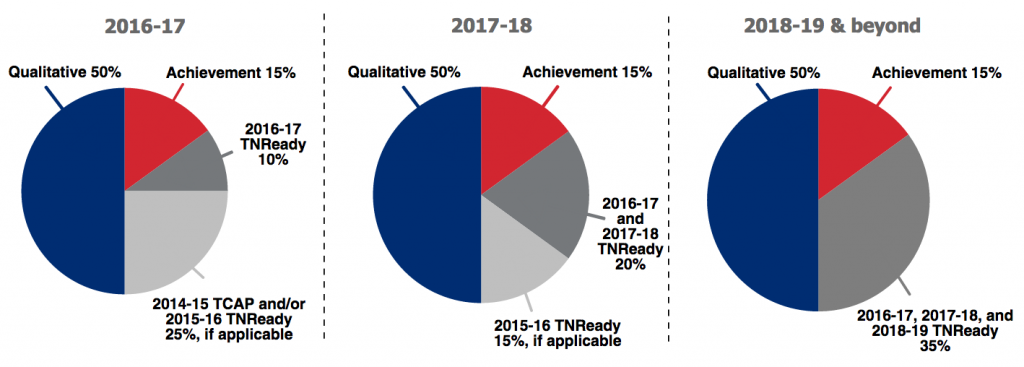Education Commissioner Candice McQueen expressed frustration recently at years of ineffective education reform efforts. Specifically, she said:
“We can’t keep throwing $10 million, $11 million, $12 million, $15 million at solutions that are not solutions,” she told legislators on House education committees.
McQueen was lamenting the lack of progress made in school turnaround efforts and pointing lawmakers toward proven solutions. In fact, she noted the state’s ESSA plan focuses on strategies that have gotten results:
While McQueen didn’t single out specific turnaround initiatives, she stressed that Tennessee needs to focus on what has worked — specifically, at 10 schools that have been moved off the state’s priority list so far and have undergone case studies. McQueen named common themes: strong school leaders, quality instruction, and community and wraparound supports, such as mental health care services.
Candice McQueen is frustrated, and rightly so. As a result, her Department of Education is using ESSA to focus Tennessee’s school improvement efforts and even rein-in the Achievement School District (ASD).
What’s interesting in all of this, then, is that some state lawmakers seem intent on pushing through a voucher program for Shelby County.
McQueen told lawmakers they can’t keep throwing millions of dollars at solutions that are not solutions. But, according to the Fiscal Note on SB 161/HB 126, the bill will result in spending nearly $9 million on the voucher “solution” next year and more than $18 million per year once fully implemented. Of course, those estimates assume the program doesn’t expand beyond Shelby County.
A voucher program that started small in Indiana just five years ago now costs that state $131 million per year.
Talk about an expensive non-solution. In fact, the most recent research indicates that vouchers actually can have a negative impact on student academic achievement.
Kevin Carey summarizes:
The first results came in late 2015. Researchers examined an Indiana voucher program that had quickly grown to serve tens of thousands of students under Mike Pence, then the state’s governor. “In mathematics,” they found, “voucher students who transfer to private schools experienced significant losses in achievement.” They also saw no improvement in reading.
The next results came a few months later, in February, when researchers published a major study of Louisiana’s voucher program. Students in the program were predominantly black and from low-income families, and they came from public schools that had received poor ratings from the state department of education, based on test scores. For private schools receiving more applicants than they could enroll, the law required that they admit students via lottery, which allowed the researchers to compare lottery winners with those who stayed in public school.
They found large negative results in both reading and math. Public elementary school students who started at the 50th percentile in math and then used a voucher to transfer to a private school dropped to the 26th percentile in a single year. Results were somewhat better in the second year, but were still well below the starting point.
In June, a third voucher study was released by the Thomas B. Fordham Institute, a conservative think tank and proponent of school choice. The study, which was financed by the pro-voucher Walton Family Foundation, focused on a large voucher program in Ohio. “Students who use vouchers to attend private schools have fared worse academically compared to their closely matched peers attending public schools,” the researchers found. Once again, results were worse in math.
So, we have an Education Commissioner pleading with the General Assembly to focus on what works AND we have evidence from other states telling us vouchers don’t get the job done. At the same time, we have evidence from schools right here in Tennessee that tells us what IS working.
It’s time for the Tennessee General Assembly to heed the advice of Candice McQueen and stop attempting to throw millions of dollars at “solutions that are not solutions.”

For more on education politics and policy in Tennessee, follow @TNEdReport



